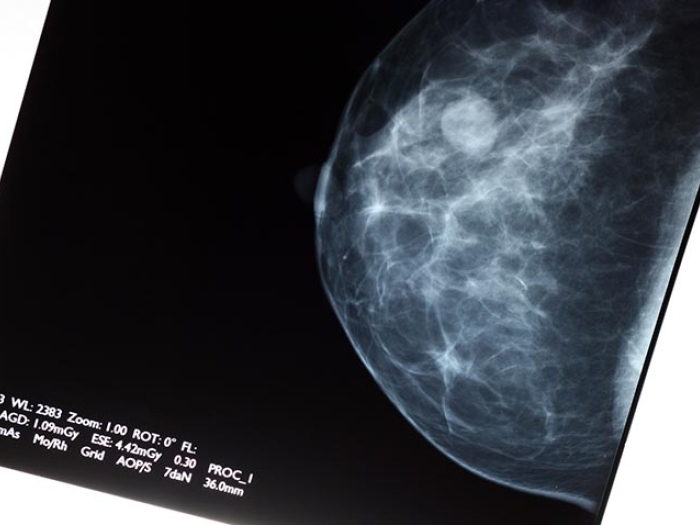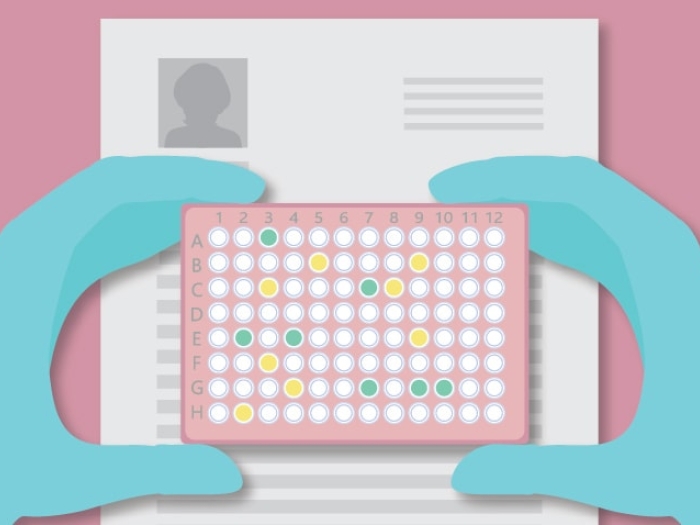As more breast cancer patients are choosing to remove both breasts, researchers examine the impact this aggressive surgery has on their employment.
7:00 AM
Author |

Women who pursue a more aggressive surgery for early stage breast cancer have nearly eight times the odds of reporting substantial employment disruptions, according to a new study from University of Michigan Rogel Cancer Center researchers.
MORE FROM THE LAB: Subscribe to our weekly newsletter
The study, published in Cancer, surveyed 1,006 women who were treated for early stage breast cancer and were employed at the time of their diagnosis. Use of chemotherapy, race and differences in employment support — including paid sick leave and flexible working schedules — all affected whether women lost more than a month of work or stopped working entirely after treatment.
But the most striking results came from the 19 percent of women who had bilateral mastectomy with reconstruction, a procedure that offers little to no benefit for women at low risk of developing a second cancer.
The women in the study who opted for a bilateral mastectomy with reconstruction had 7.8 times the odds of missing more than a month of work or stopping work altogether, compared with women who chose a lumpectomy and radiation therapy.
"It really stood out, especially because bilateral mastectomy has not been demonstrated to improve survival and clearly has a negative impact on employment," says lead study author Reshma Jagsi, M.D., professor and deputy chair of radiation oncology at Michigan Medicine.
"It's not clear that this association between surgical treatment aggressiveness and employment experience is something that is making its way into the discussions that physicians have with patients about the full range of risks and benefits of their treatment decisions."
Talking to patients about employment effects
Prior studies that examined the impact of cancer treatment decisions on employment showed that patients who received chemotherapy were most likely to experience longer disruptions in or loss of employment, but changes in breast cancer management in recent years have shifted recommendations away from chemotherapy for early stage breast cancer.
SEE ALSO: Choosing Double Mastectomy, Even If Not Medically Necessary
"But as we've had success reducing overtreatment with chemotherapy, we're now seeing a paradoxical increase in what may be overtreatment with surgery," says Jagsi. "We're seeing more and more women choosing a much more aggressive surgical treatment that isn't clinically mandatory and doesn't improve survival, often for peace of mind."
Jagsi says clinicians need to learn to communicate with patients in a way that supports their autonomy, but they must also use data to show there may be unexpected downsides to the treatment they are considering.
"So when a woman walks into a consultation saying, 'I really want to remove both of my breasts,' the role of the physician is to say, 'I hear you. I will support you. We will do what you ultimately decide to do,'" says Jagsi. "But they also need to make sure the patient is aware of all the options available to her, and the relative risks and benefits."
With the growing use of mastectomy, fueled by celebrity disclosures and growing patient interest, further research is necessary to monitor whether the short-term employment consequences seen in this study will translate into longer-term effects on these women's employment and well-being, the study authors say.
"We also need to develop formal training modules for physicians and surgeons who are treating people with cancer to understand how to begin conversations about employment effects and incorporate those into our routine discussions," says Jagsi. "It doesn't mean that every woman who learns of these study findings is going to choose not to have a bilateral mastectomy, but it is important to make sure that those who do choose that treatment course are fully informed."

Explore a variety of healthcare news & stories by visiting the Health Lab home page for more articles.

Department of Communication at Michigan Medicine
Want top health & research news weekly? Sign up for Health Lab’s newsletters today!





